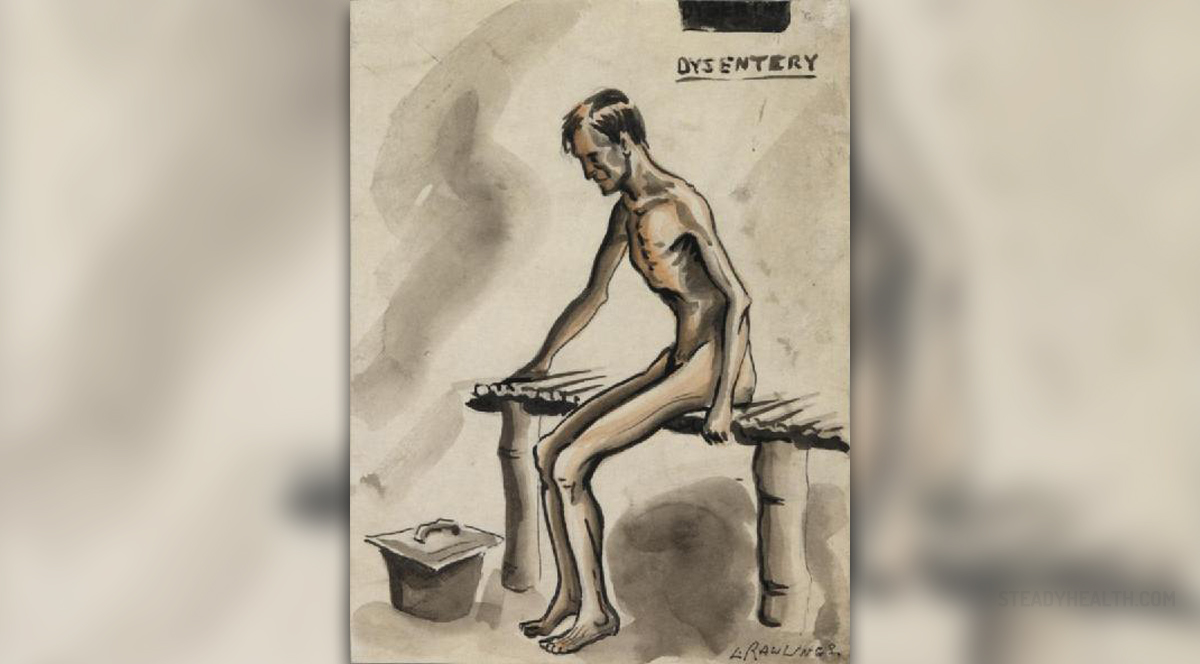
Dysentery is an infection of intestines caused by two infectious agents. These agents include Shebelle bacterium and Endameba histolytic which belongs to a group of parasites. The first culprit, the Shebelle bacterium is common to all parts of the world while the parasite Endameba histolytic is present in tropical areas. Both of the diseases are transmitted due to poor hygiene (filthy hands and infected food). Unlike the infection caused by Shebelle bacterium, the second disease may be fatal in not treated properly. The diseases must be reported to the local authority once doctor has set up the diagnosis.
The main symptoms include diarrhea and cramps.
The Symptoms of Bacillary Dysentery
The incubation period for the disease caused by Shebelle lasts three days. After that period mild symptoms such as stomach pain and diarrhea occur. In the beginning there is no blood or mucus present in the feces. These symptoms are present approximately 7 days and most people do not even find them serious so they tend not to visit their doctors. The diarrhea is frequent in the beginning but the stool is back to normal within few days. In more serious cases the symptoms may include watery stool with traces of blood and mucus, nausea and vomiting. Extremely high temperature and intensive abdominal pain may occur.
The Symptoms of Amoebic Dysentery
This form of dysentery is common for tropical region. The period after the exposure is without any symptoms and lasts approximately two to four weeks. However during the mentioned 2-4 weeks an infected person passes cysts of Endameba histolytic in the feces. This way the disease can keep on pervading since anyone who is in contact with the cysts and do not take care of hygiene properly gets infected. The symptoms of this form of dysentery include nausea and vomiting, watery diarrhea (with blood and mucus or even pus present), pain in the stomach and high temperature. The blood in the stool is a result of damaged intestine wall since the parasite leads to ulcers on the intestine wall. The defecation is quite painful and there are false alarms to defecate even though the person does not have stool at all. The symptoms last from a few days to several weeks. In this case the treatment is essential since the Endameba tends to continue living in the intestine for months or even years and the symptoms may reoccur. Additionally it may lead to more severe condition, the liver abscess. This serious state is treated surgically.












_f_280x120.jpg)




Your thoughts on this
Loading...